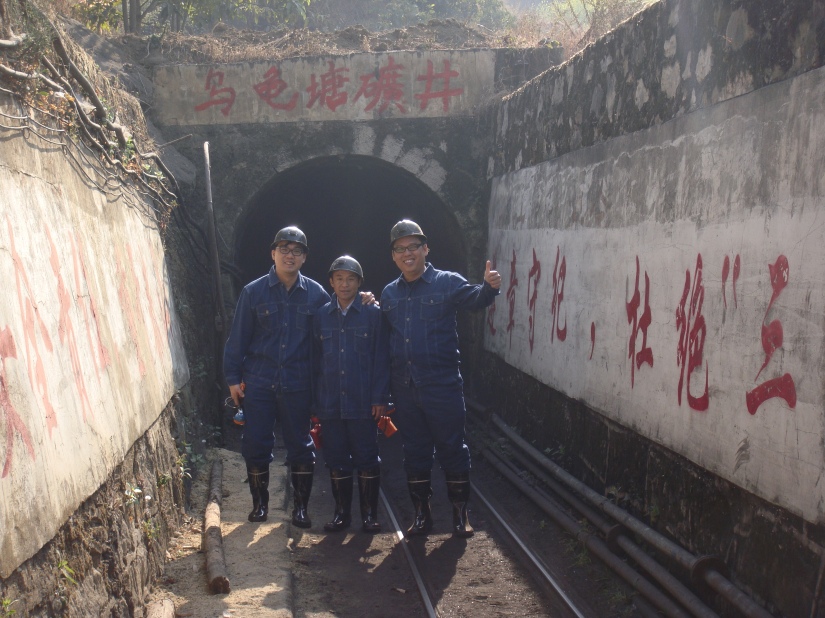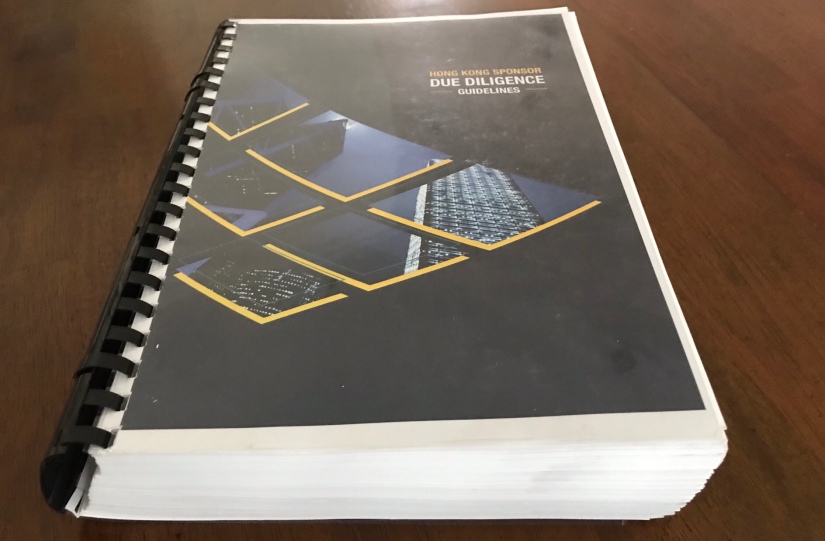
Hong Kong is by far the leading capital and financial market in Asia. Yet, recent enforcement actions by the Securities Futures Commission (SFC) indicate not all is well with the stock exchange market on the island enclave.
Earlier this month, the SFC fined CCB International Capital USD3.06m for failing its duty as IPO Sponsor For Fujian Dongya Aquatic Products.
The latest in a series enforcement actions against big Hong Kong IPO Sponsor names since investigations commenced against 15 financial firms in October 2017, concerns over inadequate IPO due diligence and follow up had earlier led the SFC to issue a Circular urging licensed corporations carrying out sponsor work to critically review and enhance their due diligence practices as well as internal systems and controls to comply with expected standards.
The Thematic Review of Licensed Corporations Engaged in Sponsor Business, issued by the SFC highlighted a number of deficiencies and instances of non-compliance with relevant laws, rules and regulations in respect of due diligence practices, internal systems and controls including:
- failure to conduct reasonable follow-up due diligence despite obvious red flags;
- merely following standard due diligence checklists without adapting or customizing them to the specific listing applications;
- unsatisfactory practices in due diligence interviews with major business stakeholders:
-
- important interviews with business stakeholders were scheduled at a very late stage of the due diligence process;
-
- failure to follow up on questions which were not answered during the interviews; and
-
- failure to confirm the bona fides of the interviewees and that they had the appropriate authority and knowledge;
- failure to provide relevant records to demonstrate that major issues were properly considered and resolved;
- failure to maintain a proper due diligence plan and documentation of due diligence carried out;
- insufficient management supervision over sponsor work:
-
- Management’s non involvement in the consideration of key concerns;
-
- Transaction Team’s failure to escalate critical matters to the Management or its designated committee for consideration;
-
- insufficient training and guidance provided to sponsor’s staff;
- insufficient resources to undertake sponsor work;
- failure to perform any annual assessments of internal systems and controls;
- annual assessment based solely on the attestation by the sponsor Principals, without detailing the work done or samples reviewed to ensure that key policies and procedures are effectively implemented;
- failure to maintain effective Chinese walls to prevent the flow of confidential information between the sponsors and related licenced corporations;
- failure to have a written company policy governing the provision of benefits to clients or failure to comply with the company policy on the receipt of benefits from clients (or could not demonstrate their compliance due to the lack of documentation);
- poor internal control procedures for independence checks – many sponsors did not confirm the independence of Transaction Team members, directors of the sponsor groups or their close associates.
Scanning through the Thematic Report, one cannot help but wonder what goes on behind the closed doors of those IPO sponsors. The mistakes were basic, and could have been avoided with due care and skill. Have IPO advisers lost the art of IPO Due Diligence?
Since 1996 when the Malaysian Securities Commission issued its guidance on Due Diligence Practices and enforced strict due diligence laws under the Securities Commission Act, our IPO Advisers including Investment Bankers, Lawyers, Valuers and Reporting Accountants have lived under the stress of criminal and civil liability for misleading statements, material omissions and or deceptive conduct in IPO submissions, offering documents and prospectuses.
After handling more than 50 IPOs since 1994 in the stock exchanges of Kuala Lumpur, Singapore, Hong Kong, Taipei, London and New York, it seems to me that the art and science of IPO Due Diligence lies in the bedrock of the due diligence defence itself i.e making reasonable enquiries and having reasonable grounds of belief that there were no misleading statements, material omissions or deceptive conduct.
Difficult questions must be asked, and tough decisions made.
We were once part of a team of IPO Advisers and experts undertaking a site visit to a coal mine in a rural province in China. About 20 professionals were supposed to descend into the bowels of the earth but when an earthquake struck a nearby city the night before the mine inspection, many were fearful. So it was left to me and an investment banker to follow the mine owner down the deep and dark tunnels of the coal mine. It was a due diligence duty that needs to be performed.
Perhaps it was never really about what needs to be undertaken in IPO Due Diligence that is really in question. If we focus on the obstacles to proper IPO Due Diligence, we are closer to solving the problem:
1. Key Performance Indicators (KPI) of Staff
If bonuses are paid based on IPO deals closed and fees earned, calling off an IPO is a big disincentive. Foolhardy staff may take unnecessary risks to claim a bigger bonus reward. Tweaking KPIs may be necessary to encourage proper due diligence, and the disclosure and resolution of risks.
2. Silo Mentality
If IPO Advisers and experts adopt a silo mentality and focus only on their scope of work and do not communicate with other advisers and experts, issues and risks will naturally fall between the cracks. Senior and experienced investment bankers and lawyers must adopt a interdisciplinary approach to investigate and communicate between the silos to flush out all material risks for disclosure.
3. Client Pressure
Some clients are notorious in threatening a change of IPO advisers and or other experts to avoid disclosure of material risks. IPO Advisers and experts must stand their ground and fulfil their due diligence responsibilities. Any change of IPO advisers or experts is of necessity a Red Flag that must be followed up. What was the reason for the change? Is the change justifiable? These are due diligence questions that must be asked and documented.
4. Too many IPOs
Doing fewer IPOs and doing them well is self explanatory but sometimes, IPO schedules are beyond the control of IPO Advisers. The simple answer is to get more staff or outsource the overflow and clashing deals to other IPO teams.
5. Opinion and Adviser Shopping
This happens when issues crop up, and some shifty IPO consultants may advise the client to change IPO advisers or experts to get a more favorable opinion to allow the IPO to proceed. Incoming advisers or experts offering more favorable opinions must know that the change itself is a red flag and must be justified.
6. Inexperience in Emerging Markets
IPO Advisers from developed markets are well advised to do a preliminary check on foreign IPO applicants from emerging markets as there will be local issues to resolve before they are ready for IPO. Allowing an airflown team of expensive IPO advisers and experts to descend on a emerging market client without a preliminary health check by local advisers is foolhardy. By the time issues were discovered, the huge expenses chalked up will put the IPO Adviser on the defensive.
7. Low Advisory Fees And Young Inexperienced IPO Teams
While not applicable to HK and London IPOs where fees are much better, the common gripe among Malaysian IPO advisers and experts is the low fees paid by clients. This is a direct result of competition and the willingness to take risks among advisers and experts. Low fees will result in fewer and less experienced resources and more mistakes and omissions. To force a change in client mentality, perhaps low fees should be treated as a red flag of inadequate due diligence thus subjecting the application to greater scrutiny and queries.
8. Political Interference And Rushed IPOs
Poor IPO candidates cannot improve with political interference. Special fast track IPO approvals will only reduce the time available for proper due diligence and increase the risks for mistakes, omissions and non disclosure.
No doubt, Malaysia is a less developed market than Hong Kong. The obstacles to proper IPO Due Diligence are applicable here.
I was involved in drafting the first Due Diligence Guide for IPO Submissions for the Industry in 1999 and was recently involved in drafting and the initial editing of the latest Due Diligence Guide. In part we looked at both the hefty Due Diligence Guidelines for HK IPO Sponsors and the slimmer Singapore version in drafting our own latest Due Diligence Guide.
Yet the strictures of Hong Kong’s SFC against merely following checklists (by extension, Due Diligence Guides) and the need to adapt and customize due diligence work to suit the circumstances of each IPO applicant remains loud and clear.
The defensive art of IPO Due Diligence (ie making reasonable enquiries and having reasonable grounds of belief) will remain the sole and only bedrock on which IPO advisers and experts can and will stand.
Removal of obstacles to undertaking proper IPO Due Diligence will go a long way in helping the due diligence process.
Likewise, the leadership and involvement of senior and experienced investment bankers and lawyers in customizing due diligence plans, supervising the IPO teams and verifying disclosures in submissions, offering documents and prospectuses will ensure the fulfillment of the responsibilities of IPO Due Diligence.

Contact us
Address :
B-11-8, Level11, Megan Avenue II, Jalan Yap Kwan Seng, 50450 Kuala Lumpur, Malaysia
Phone : (603) 2203 3388
Fax : (603) 2203 3399
Website :
” Meeting Your Legal Needs Online “

